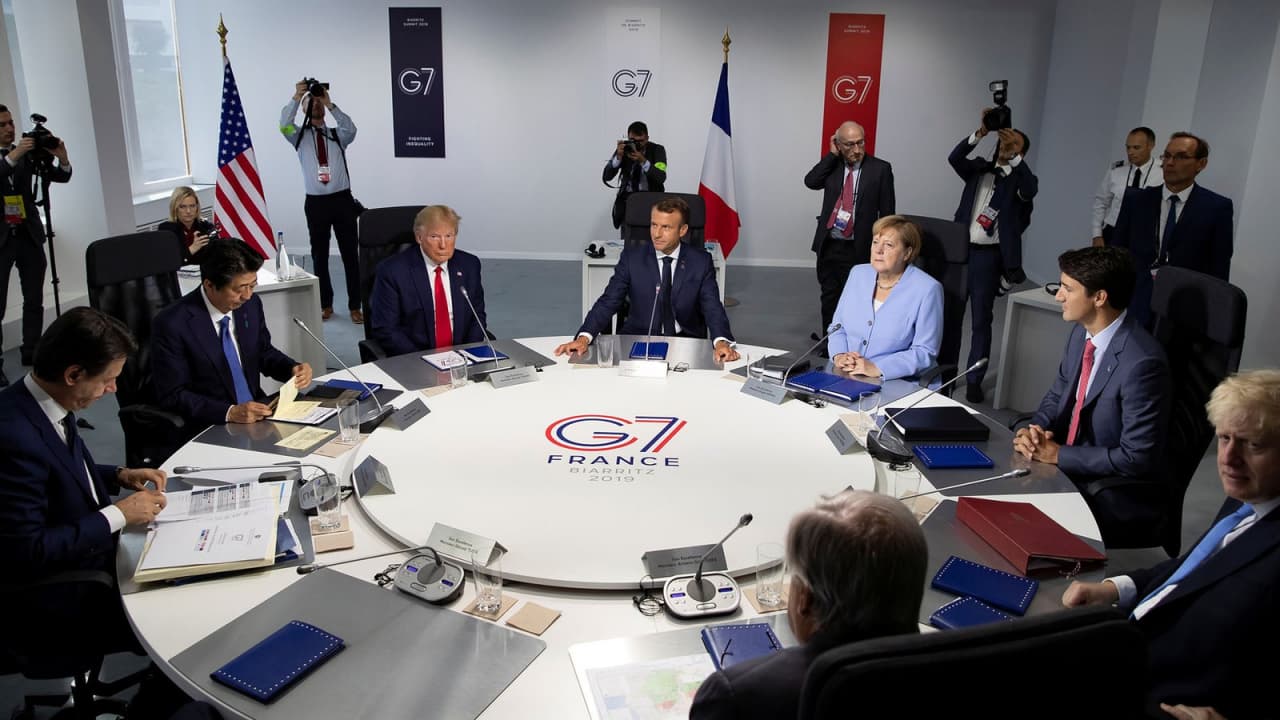The G7 is an informal bloc of industrialized democracies - the United States, Canada, France, Germany, Italy, Japan and the United Kingdom - that meets annually to discuss issues such as global economic governance, international security and energy policy. Proponents say the forum's small and relatively homogeneous membership fosters collective decision-making, but critics point out that it often lacks bringing its ideas to a logical conclusion and that it excludes important emerging powers.
The future of the G7 has been threatened by continuing tensions with Russia and, increasingly, China, as well as internal disagreements over trade and climate policies. President Joe Biden has pledged to restore the United States' historic commitment to multilateralism. In a sign of renewed cooperation, the G7 reached a historic agreement ahead of the June 2021 summit in Cornwall, England, to revise global corporate tax rules.
Experts hoped that the re-created G7 could better facilitate collective action. Without Russia, CFR's Stuart M. Patrick says the group has become more “solidarity and effective,” with both common interests and shared values. However, President Trump, during his tenure, challenged G7 unity on a number of issues, including mainly trade and climate, arguing that US allies took advantage of the United States. The rise of China also poses problems for the group.
Many analysts also believe that the credibility and influence of the G20, a forum of finance ministers and central bank governors of the world's nineteen largest countries, as well as the EU, has surpassed the credibility of the G7. New powers, including Brazil, China, India, Mexico and South Africa, whose absence from the G7 is often noted, belong to the G20. Russia also remains a member of the G20, which. The member states of the group represent about 80 percent of the world's GDP and three-fifths of the world's population. In addition, there are also calls for new multilateral agreements. Several experts have approved the expansion of the G7 to include Australia, India and South Korea, thus forming the D10 democracies group.
Since taking office, President Biden has brought the United States back into its allied alliances and wider multilateral system of relations, and he will attend his first G7 summit as president in June 2021. In addition to the fact that on the eve of a new meeting in the UK, G7 finance ministers reached an agreement on new principles of taxation, it is also reported that the G7 is going to launch an alternative to the Chinese BRI.
Read also:
Will the world ever uncover the mystery of the origin of COVID-19?


